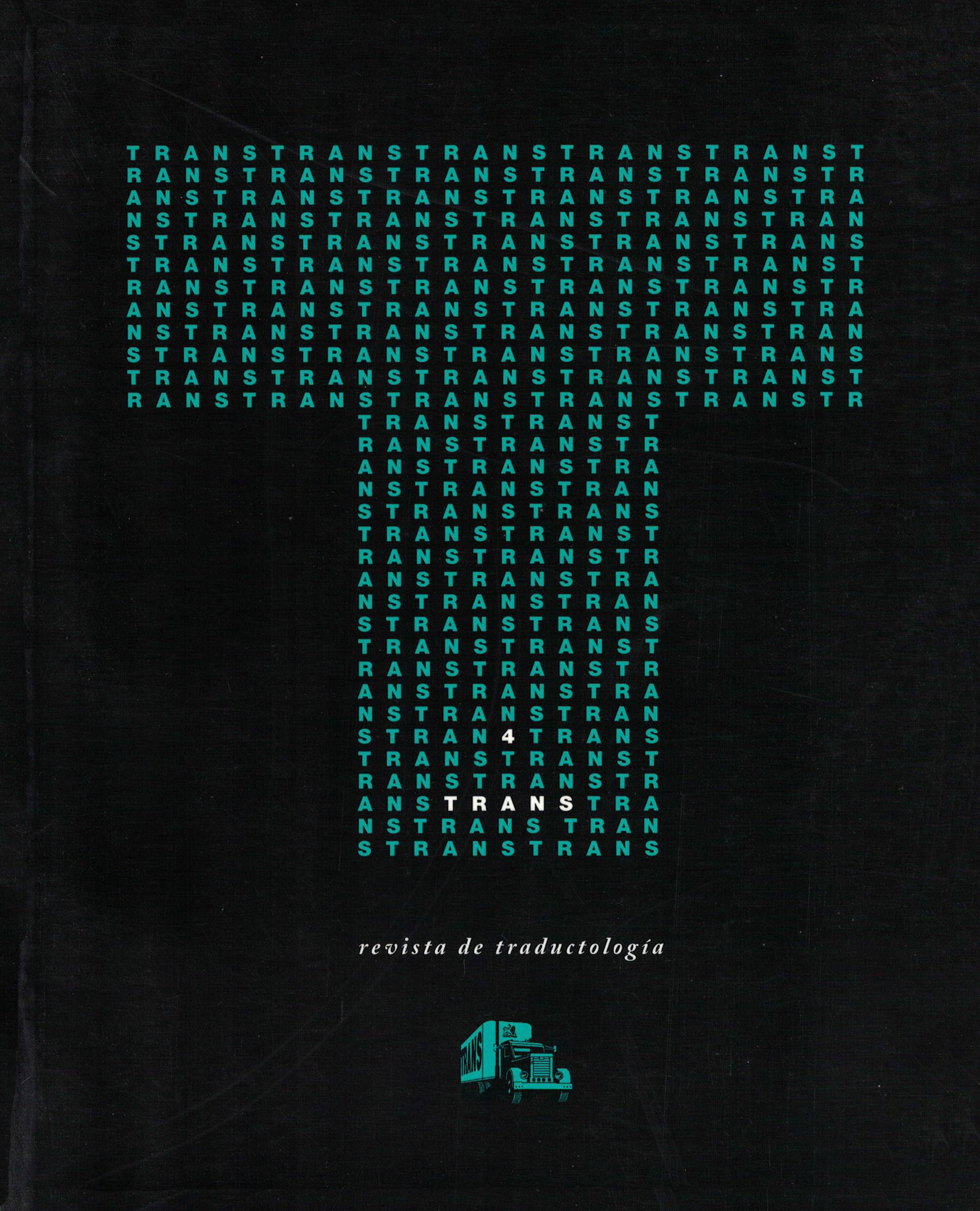La traducción del cómic: retos, estrategias y resultados
DOI:
https://doi.org/10.24310/TRANS.2000.v0i4.2518Abstract
El cómic es un medio de comunicación que goza de gran aceptación en determinados círculos y que genera un mercado interesante de casa a su traducción (en 1997, el 67,2 % de la oferta fue material traducido). El traslado de un cómic de una lengua a otra plantea, sin embargo, algunas dificultades dado que: 1. Se trata de un tipo especial de textos en el que la plástica y la narrativa se hallan interrelacionadas; 2. Se juega con la función lúdica del lenguaje y 3. Se sirve del lenguaje icónico. Otros elementos que intervienen en un cómic, como en cualquier otro encargo de traducción, son el tipo de lectores a los que va dirigido, el tiempo disponible para su traducción, la relación calidad y precio, etc., así como muchas otras las trabas lingüísticas y socio-culturales. En las páginas que siguen centraré la atención en tres aspectos por la problemática que plantea su traducción: 1. El tipo de cómic y el tratamiento del lenguaje; 2. La influencia del marco en el que se inserta el material lingüístico y las limitaciones que ello impone y 3. La reproducción/traducción del lenguaje icónico.
Downloads
Metrics
Publication Facts
Reviewer profiles N/A
Author statements
Indexed in
-
—
- Academic society
- N/A
- Publisher
- Universidad de Málaga
Downloads
Published
How to Cite
Issue
Section
License
All contents published in TRANS. Revista de Traductología are protected under the Creative Commons Attribution-NonCommercial-ShareAlike 4.0 International (CC BY-NC-SA 4.0) license. All about this license is available in the following link: <http://creativecommons.org/licenses/by-nc-sa/4.0>
Users can copy, use, redistribute, share and exhibit publicly as long as:
- The original source and authorship of the material are cited (Journal, Publisher and URL of the work).
- It is not used for comercial purposes.
- The existence of the license and its especifications are mentioned.
- ShareAlike — If you remix, transform, or build upon the material, you must distribute your contributions under the same license as the original.
There are two sets of authors’ rights: moral and property rights. Moral rights are perpetual prerogatives, unrenounceable, not-transferable, unalienable, imprescriptible and inembargable. According to authors’ rights legislation, TRANS. Revista de Traductología recognizes and respects authors moral rights, as well as the ownership of property rights, which will be transferred to University of Malaga in open access.
The property rights are referred to the benefits that are gained by the use or the dissemination of works. TRANS. Revista de Traductología is published in an open access form and it is exclusively licenced by any means for doing or authorising distribution, dissemination, reproduction, , adaptation, translation or arrangement of works.
Authors are responsable for obtaining the necessary permission to use copyrighted images.













21.png)
